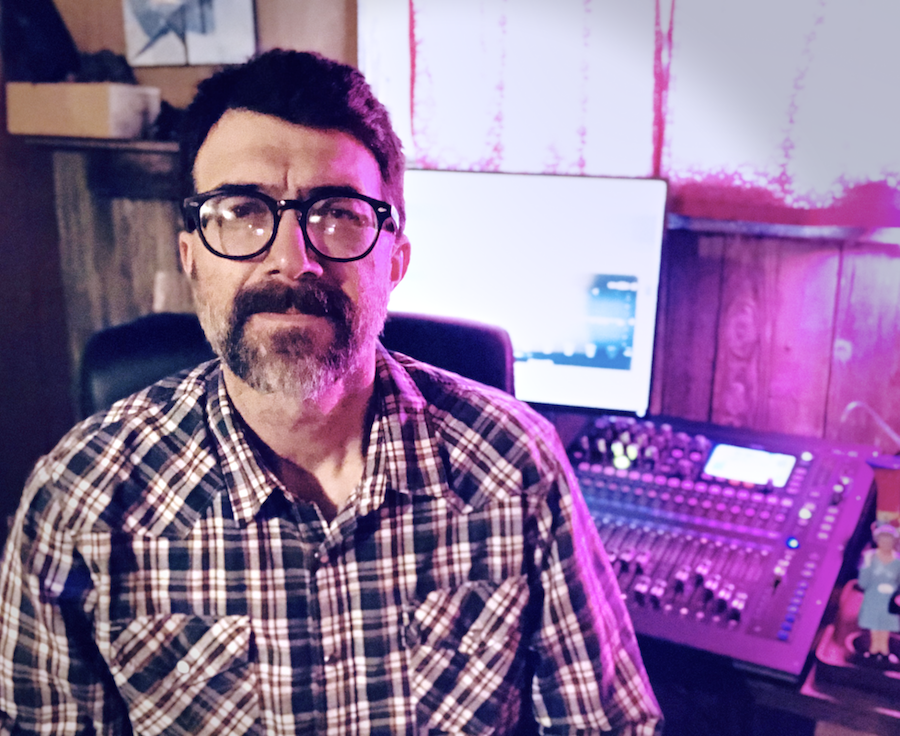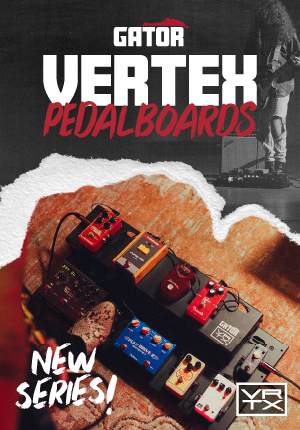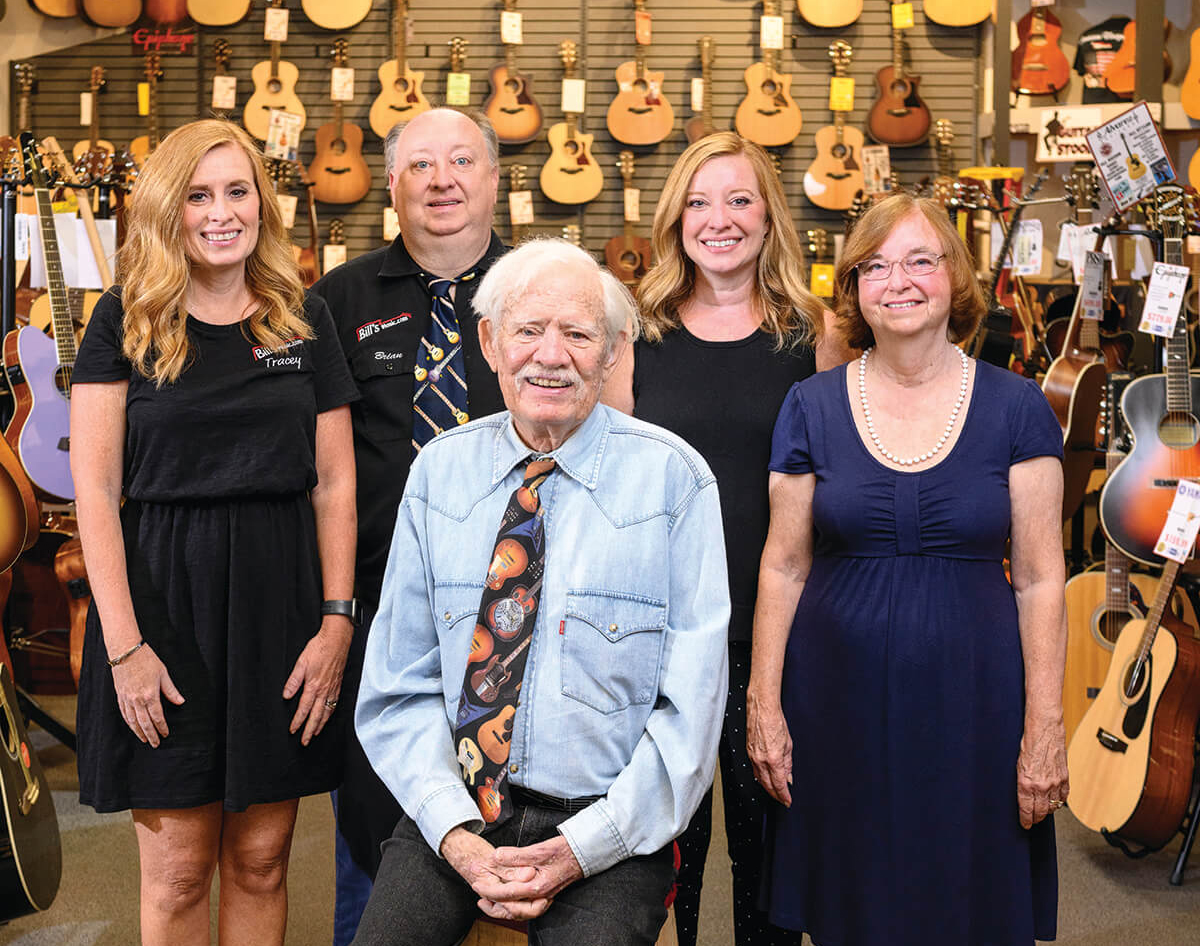
Allen & Heath’s Jeff Hawley
What do a Chevy Malibu, a PlayStation 5 and a Chase Bliss Dark World Dual Channel Reverb pedal all have in common? They’re all feeling the crunch of the pandemic-fueled, worldwide chip shortage plaguing electronic manufacturers. With a lot of MI, DJ and pro-audio equipment requiring digital chips — as well as other short-in-supply small electronic components — many guitar pedal, audio interface and DJ mixer manufacturers are dealing with backorders ranging anywhere from 4-6 weeks to 3-4 months.
“We are definitely feeling effects from the chip shortage, as pretty much everyone has,” said Steve Schlief, Universal Audio’s COO. “What’s unique about this situation is that the shortage isn’t restricted to a specific type of chip — it’s ubiquitous. Our industry is struggling with the same issues and shortages that major corporations are. There’s a shortage in pretty much everything, from passive and active components, logic, memory, even raw materials such as the sheet metals that we need to build housings for our products.”
At EarthQuaker Devices, Brad Thorla, who handles inventory systems management for the company, said the pedal manufacturer has had to drastically change its approach to ordering.
“We’d previously used a very lean, just-in-time ordering system to keep inventory as low as possible, like most companies,” Thorla said. “I feel like we were fairly lucky because prior to the widespread shortage, we had a fire in a fabricating plant cause a shortage for a single, very important chip. At that point, we started looking at other vulnerabilities in our inventory, and we began slightly expanding some of our holdings. When the COVID-related shortages began hitting, we already had systems in place to quickly expand our buffer considerations in a very controlled way that has kept us from resorting to panic buying. But what was once a fairly easy reordering process has become incredibly intensive as we are exploring inventory through multiple vendors and fabricators, weighing multiple cost options, and even implementing slight board revisions when replacement parts have a different footprint.”
The shortage has put a pinch in manufacturers’ ability to produce product on schedule, and pedal manufacturer Voodoo Labs shared what most companies are seeing right now: longer-than-usual delivery lead-times.
“We’ve really not been on schedule,” said Tony Motta, the company’s vice president of global sales and marketing. “We’ve gone from pre-pandemic conditions of having available inventory to fill most dealer orders within 48 hours to a pandemic era where we have a high backorder with three- to four-month delivery lead-times.”
Similar to EarthQuaker, Motta said Voodoo Labs’ ability to plan ahead has made a huge difference.
“Thankfully, we’ve always had good advance planning practices with materials and components purchasing,” Motta said. “If we relied on just-in-time delivery from our suppliers, we would be dead in the water. Even with the best planning, there are shortages from suppliers and shipping logistics delays that are out of our control. When components are in short supply, you just have to make tough calls on what gets built and what doesn’t.”
Adapting Processes
In addition to making these tough calls, pedal, interface and mixer manufacturers have been forced to change tactics in order to continue to produce product.
“We’ve had to do very careful planning to try and stockpile especially difficult-to-find parts, and in some cases we have to pay way more for parts than we have in the past,” said Joel Korte, owner of pedal manufacturer Chase Bliss Audio. “In addition, we’ve had to redesign PCBs in some cases to accommodate different parts that we are able to find.”
Chase Bliss isn’t alone when it comes to undergoing redesigns. In October, Queens, New York-based pedal maker Death by Audio released its Speed Tripper optical phaser in collaboration with Levitation. When the supply chain issues made it impossible for the company to source the delay chip used in the original prototype, owner Oliver Ackermann and his crew toiled for weeks to recreate the circuit to use discrete analog components instead.
“This was one of the faster projects we completed, but [it] still took maybe 60 hours to design the circuit,” Ackermann said. “We go through a lot of testing and tweaking, and that takes us a long time. I’m not really sure how long the chip shortage will go on, but it’s just kind of starting so I bet people will have to get creative with old designs or just design for the future.”
Ackermann said he believes the constraints caused by the chip shortage might inspire new creativity in manufacturers.
“It also [makes for] better design — working with what you have,” Ackermann said. “[The shortage] will have a huge impact on developers, as it will cut into margins, but it will hopefully also be inspiring and exciting for people to move out of their comfort zone and use technologies they are not familiar with to reach their goals.”
The Retail Effect
Heading into the holiday selling season, MI and pro-audio retailers are continuing to see sporadic product shipments or depleted stock in many of the affected categories. While product shortages have been widespread since the start of the pandemic, retailers said ordering early and often has soothed their stocking woes.
Three-location, New York-based dealer Alto Music has reported seeing “major shortages on certain electronic products, including interfaces, pedals, DJ equipment and speakers,” according to Dave Reuter, vice president of store operations for the audio-heavy, full-line retailer.
“Thankfully, Alto Music saw the writing on the wall early,” Reuter added. “We are pretty well-stocked considering what is going on.”
Anthony Thompson, Alto’s pro-audio department manager and purchaser, said a lot of the constrained product is beginning to arrive at the store despite being ordered months — or even up to a year — ago.
“I think the key for us was to order big and order often so that when product is allocated, we are close to the front of the line to receive it,” Thompson explained, adding that considering new lines to stock in order to ease the burden has been helpful. “We are always looking out for brands to partner with and carry in our stores, and that has certainly helped as well.”
At Five Star Guitars in Beaverton, Oregon, managing customer expectations has been one of the more challenging residual effects of the chip shortage, but frequent communication has helped ease this stress.
“We try to stay on top of orders for customers who are waiting patiently, though it can be difficult to provide an update when there’s no new information from manufacturers,” said Jeremie Murfin, owner. “We routinely scroll through orders and reach out to our reps to ask for any news we can pass along. Sometimes I wonder if they’ve started screening our phone calls, because we ask so frequently! Ha! But most customers are understanding as long as they don’t feel forgotten, so we’re working hard to get better at that portion of real-time communication.”
Cypher Shah, sales manager at Astro AVL in Glendale, California, said he’s seen some vendors, especially in the DJ market, stop accepting orders.
“They’ve literally said, ‘We can’t take your money,’ which is so wild. They are that overloaded.”
“Luckily, our customers know how agile we are because we’ve been around for 50 years,” he continued. “We’ve been lucky in certain instances. For example, one manufacturer has supplied us with factory-fresh B stock. That’s not available to all, and that has helped.”
Additionally, Shah said his store’s rental department has been an unexpected saving grace for customers in need a certain mixer or monitor right away.
“We do things in the field, and we have equipment that we never sell, such as DJ mixers and digital mixers, so for those customers who are really in a bind, they can rent it,” he explained, adding that Astro has enacted a “get in line” philosophy and set expectations for customers from the get-go.
“We set the expectation right away, and say, ‘Look, this is what’s happening,’” Shah said. “If a customer wants something in February, they have to put a payment down in December. And people are more than happy to get in line. That’s helped us maintain our sales flow.”
Universal Audio’s Steve Schlief said supplier-dealer communication is now more important than ever.
“I think anything retailers can do to keep communicating with their suppliers early and often will go a long way,” Schlief said. “Accurate forecasting and making sure their partners are aware of upcoming promotions will in turn help suppliers make sure they can do their best to accurately forecast and deliver enough.”
Schlief also encouraged retailers to think outside the box when it comes to stocking.
“If some of your more fast-moving, low-cost items are sold out, don’t forget to check out some of the higher-quality products in stock that may cost a bit more,” he said. “If a customer buys one, they’ll get a quality product that will stand the test of time, and you’ll still be able to make a sale. A win-win.”
EarthQuaker’s Thorla said maintaining flexibility in what a store stocks will help ease stock burdens.
“There are always going to be some items that are less superconductor intensive, so keeping that on hand will give the consumer something to purchase,” he explained. “The positive in all this is that many of the issues with the supply chain are being driven by an overall increased demand for consumer products, so just having some product may be enough until things return to normal, and the customers’ ideal products are available.”
Mixing console manufacturer Allen & Heath has reported experiencing effects of the shortage, but strong relationships with its chip manufacturers in both the U.S. and Asia have helped ease the strain. To ease the retailers’ product strain, Jeff Hawley, the company’s marketing director, suggested dealers consider products across American Music & Sound’s portfolio, the U.S. distributor of Allen & Heath. “We have a wide and overlapping product range that all interconnects with our ‘everything IO’ strategy. So, we’ve seen system specs change direction from SQ to Avantis, since both could hook up to an existing dLive, for example,” Hawley explained. “[Speaking] of dLive, we have also seen system purchases change to a different larger or smaller MixRack and or a different surface due to availability. As long as we get a great solution for the customer, we don’t mind. There are usually a couple of ways to skin each audio cat within the Allen & Heath product line.”
The Foreseeable Future
So when will things return to “normal?” While it’s difficult to predict, Thorla said he’s pessimistic.
“We have only just recently hit the second-order shortages, where supply isn’t able to keep up with artificially elevated demand due to the panic buying, a la toilet paper the first few weeks of the pandemic,” he explained. “Every week is a new round of lead-time-change notifications, so it’s probably going to get worse in the short term. In the medium term, the pollution control mandates China is imposing, which obviously are important for reducing climate change, are leading to a reduction of raw material availability, which will likely cause even more shortages. Ultimately, a void in the market will eventually be filled. But with a cutting-edge technology like chip manufacturing, it could be a long time before there is increased fab capabilities, possibly even three or more years from now. And by then, we could start to get some wicked accordion effects as production tries to determine the actual demand while there is reduced ordering as companies burn through their panic inventory. If I was trying to be optimistic, I’d say that if by Q2 2023, everything had been relatively smoothed out and lead times returned to within a month of normal, I’d be very happy.”
Universal Audio’s Steve Schlief agreed roughly with Thorla’s timeline.
“Unfortunately, I don’t see a quick fix for this situation,” he said. “My guess is we’re going to be dealing with this situation for most of 2022.”
Joel Korte at Chase Bliss was slightly more optimistic, estimating the shortage will resolve over the next year, and Cypher Shah at Astro AVL said he anticipates by mid-2022 the shortage will begin to ease up.
“But right now, it’s one day at a time,” Shah said. “At Astro AVL, we don’t want to tell someone we don’t have what they are looking for; we always want to find them [a solution]. That was much, much easier a year ago. We’ve become a little more desensitized to this situation as it rages on, but most importantly you just have to keep the lines of communication open with both your vendors and your customers.” MI











